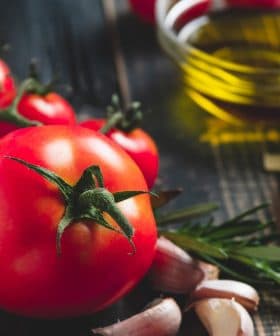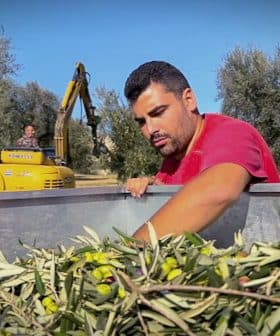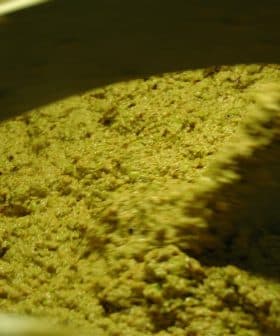In Australia, Advocates Call for Improved Health Rating for Olive Oil
An independent report commissioned by the Australian government recommended that olive oil's health star rating should not be improved due to its saturated fat content. Opponents said the report misses the bigger health picture.
The Health Star Rating system in Australia currently ranks olive oil as less healthy than other oils due to its saturated fat content, prompting a review of the system to consider factors like polyphenols and omega‑3 fatty acids. Health experts are advocating for changes in the system to better align with consumer understanding of healthy food choices, with a final decision expected to be made by state and federal ministers in November.
The issue of whether or not olive oil should receive special treatment in Australia’s national Health Star Rating (HSR) system will be brought up at the next meeting of the Australia and New Zealand Ministerial Forum on food regulation.
Currently, olive oil is ranked as less healthy than canola or sunflower oil by the system due to its saturated fat content and without taking into account healthful content, such as polyphenols or omega‑3 fatty acids.
There will be no perfect system for every single food but, once you’ve taken account of all the evidence, it has to have some sort of logical consistency.
In the run-up to the regulatory meeting, the Australian government hired a consulting firm to audit the HSR system and to determine whether olive oil’s rating should be changed based on factors not currently taken into consideration by the system.
“The review acknowledges the evidence submitted by stakeholders regarding the their report. “However, the review is mindful that the HSR calculator can only draw on a finite set of factors to determine a product’s HSR.”
See Also:Australia and New Zealand Olive Oil News“While olive oil has certain health benefits, it is also higher in saturated fats than some other oils,” the authors of the report added.
The HSR system, which gives all packaged foods in the two countries a grade ranging from one star (least healthy) to five stars (most healthy), takes calories, sodium content, saturated fat, total sugars, protein and fiber into account when determining the rating.
Several health experts have warned that the narrow scope of the HSR system undermines the idea of the rating system.
“There will be no perfect system for every single food but, once you’ve taken account of all the evidence, it has to have some sort of logical consistency — otherwise it gets undermined and people don’t understand what’s right and not right and why,” Anna Peeters, the director of the Institute for Health Transformation at Deakin University, told The Sydney Morning Herald.
Peeters has asked Australian politicians not to discount olive oil’s unique health properties and instead suggested that the HSR system should align more closely with “what consumers logically understand about healthy food choices.”
In its report, MPS Consulting insisted that olive oil could not be differentiated from other cooking oils “on the basis of factors not considered for any other product.”
Other advocates for a change in olive oil’s health ranking argued that instead of scrapping the whole system, the amount of saturated fats allowed in foods with an HSR score of five (the healthiest) should be increased.
At present, packaged foods are required to have a saturated fat content of less than 12 percent to be considered for the five-star rating. Olive oil has a saturated fat content of 14 percent and receives an HSR of three to 3.5 (depending on its grade).
“Some stakeholders suggested that all edible oils with less than or equal to 15 percent saturated fat should automatically score an HSR of five,” MPS Consulting wrote. “However, this result cannot be achieved through the HSR calculator without equally increasing the HSRs of margarines and non-dairy blends with saturated fat less than or equal to 15 percent, significantly reducing discrimination between products in this category.”
Joanna McMillan, a nutrition scientist and dietician at Latrobe University, in Melbourne, and scientific advisor for Boundary Bend, thinks that the HSR system is too narrowly focused on single ingredients and should instead focus on entire diets.
“Nutritional science has moved away from single nutrients like saturated fat and more into dietary patterns,” McMillan told The Sydney Morning Herald. “Eating a party pie is not the same as eating a piece of cheese even if they have the same saturated fat.”
Other advocates for changing olive oil’s health ranking have called for edible oils to be exempt from the HRS system, similar to single-ingredient foods such as salt and sugar.
However, MPS Consulting responded that other single-ingredient packaged food items, such as fruits, vegetables, meats and rice all received a rating, which helps customers make informed decisions.
“Removing edible oils from the system would limit the information available to consumers to make healthier choices in this category,” the authors of the report wrote.
State and federal ministers from both countries are expected to make their final decision on the issue at the food regulation meeting in November.









